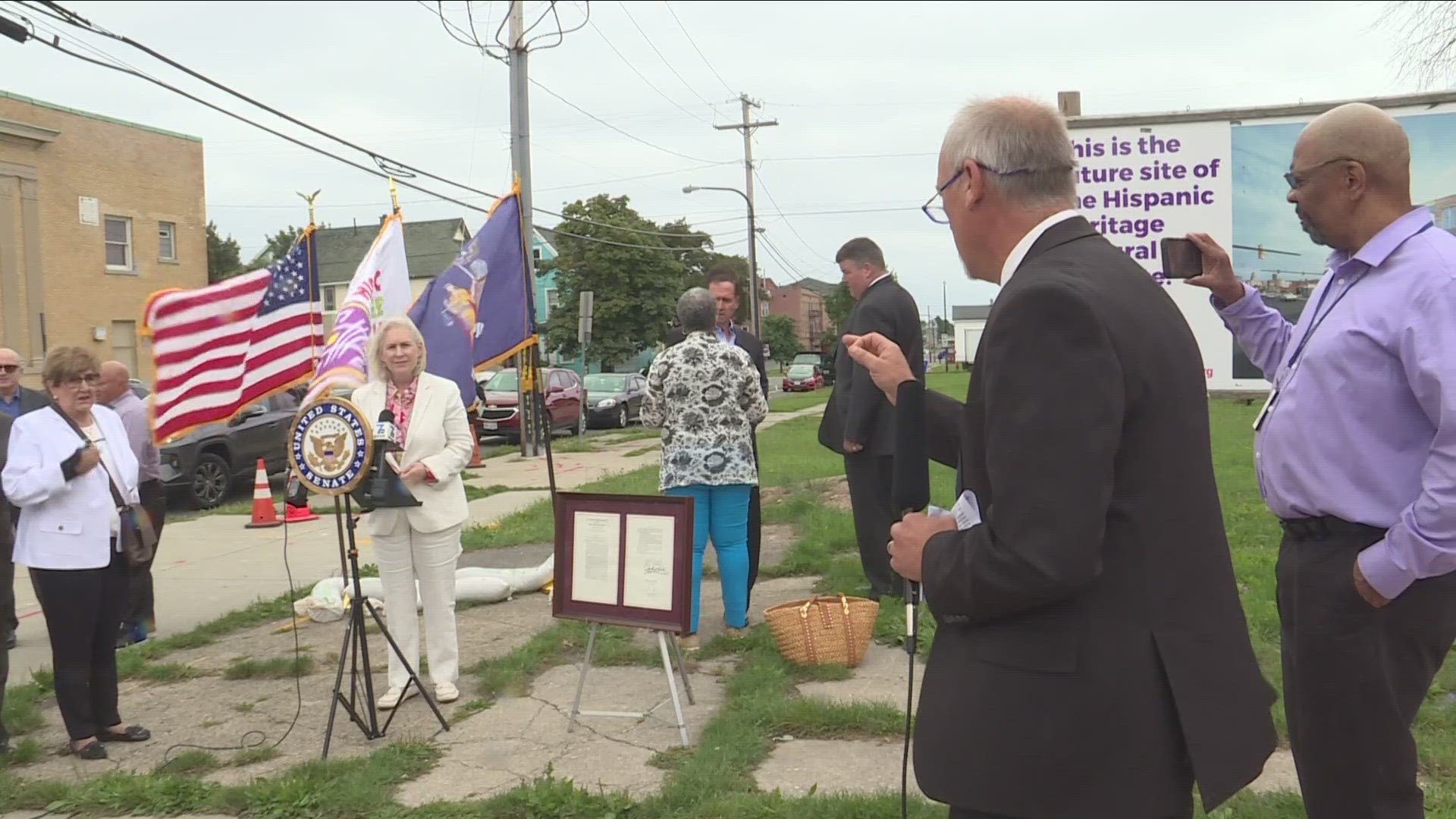BUFFALO, N.Y. — Migrants continue to stream across the border seeking asylum in the United States.
In New York City there's no more room at the inns and many sleep on the streets.
And now the self proclaimed sanctuary city is exporting them to other places like Buffalo, where in recent months hundreds have been deposited at hotels, while billions of taxpayer dollars are being spent to provide for their care.
"It's not working," U.S. Sen. Kirsten Gillibrand (D-New York) said while visiting Buffalo on Wednesday.
Gillibrand has been in Washington for over 16 years, which is about as long as lawmakers have been talking about "comprehensive" immigration reform.
However, "comprehensive" might translate to "complicated" when it comes to passing legislation.
"We could create a much healthier legal immigration system so there would be less pressure of people coming to the border which is very dangerous. It's not manageable," Gillibrand said.
She noted that in recent years the number of visas for legal immigrants have been reduced, and she believes they should should be increased and tied to the types of jobs which need filling in the United States.
"For example, 1 million visas for health care workers. And I think we need to match that with 250,000 visas just for agriculture workers and another 50,000 for tech workers," she said.
Regarding so-called asylum seekers who may have neither the skills nor the desire to fill such jobs, then she, like others, are calling for changing laws in order to allow them to get any job, so that they may begin supporting themselves and not be a burden on taxpayers.
"I'm working on legislation to shorten the number of days they have to wait. Right now they have to wait 180 days before they can start working. That's six months that's ridiculous," Gillibrand said. "If they are here they should be allowed to work in order to sustain themselves."
On average, it can now take four years or more to adjudicate an asylum case, and that figures to lengthen with more migrants coming.
Gillibrand says she wants additional resources committed to expanding the immigration courts and to hire more judges in order to help clear the backlog.
Gillibrand also believes that some of the ideas proposed to mitigate the crisis might not have to endure the congressional incubator, and could be done by executive order instead.
Asked if she might support putting the brakes on admitting so many migrants until these situations can be addressed, Gillibrand indicated she could not.
"This is a humanitarian crisis and these people are seeking help. We are a generous nation, we are wealthy nation, we are a big nation, and these are problems we can solve. But we need to do it together," she said.

